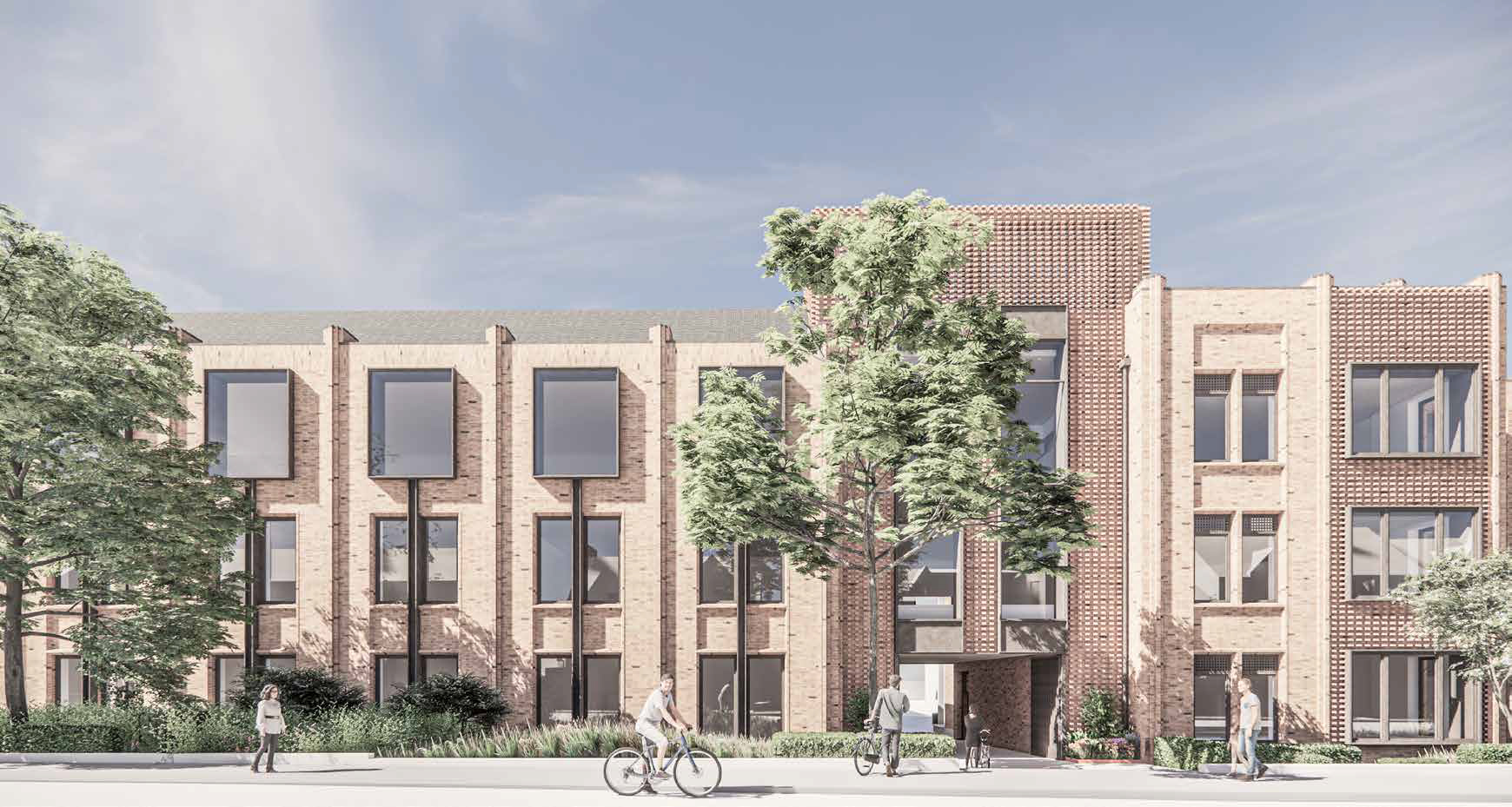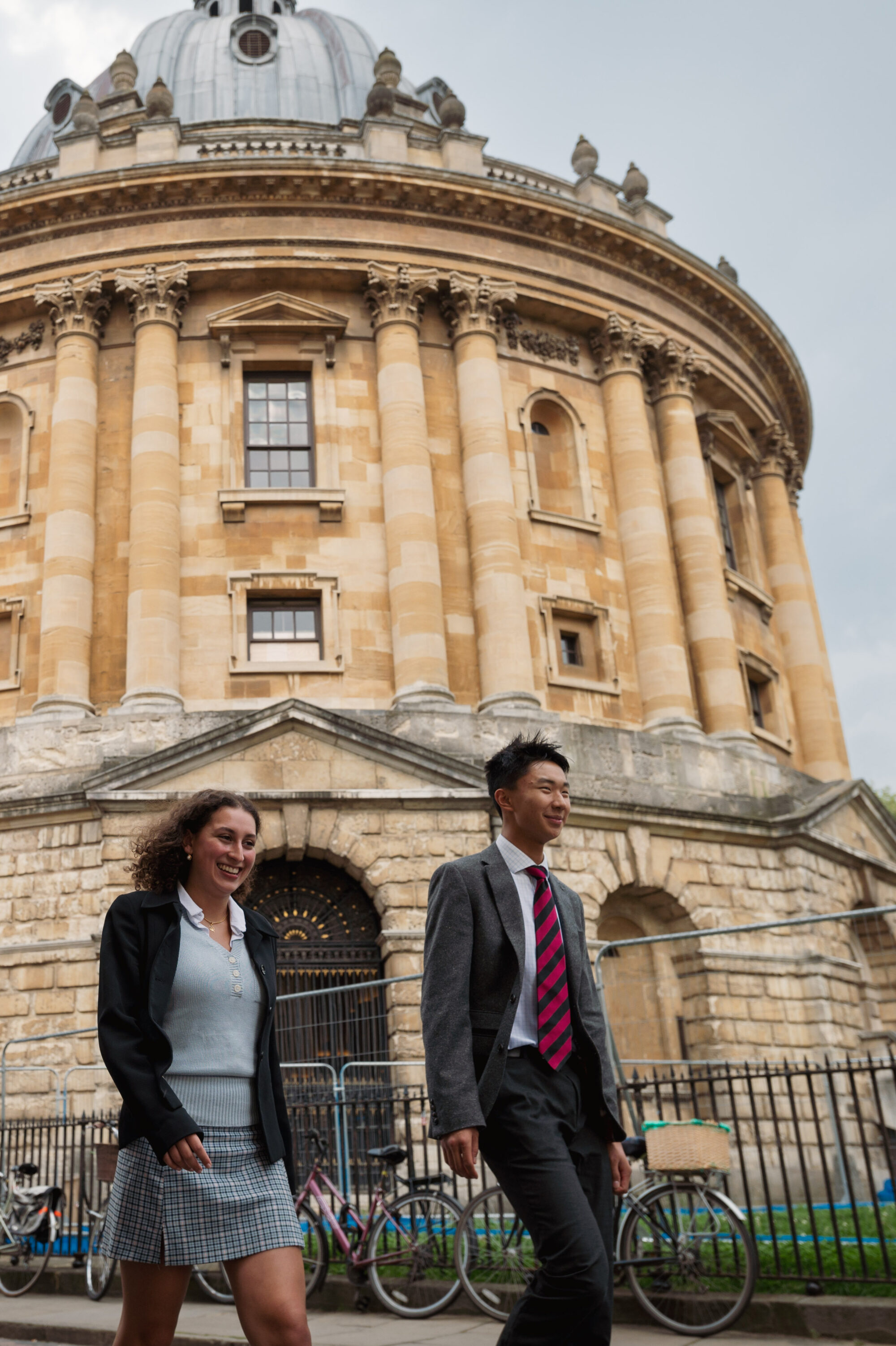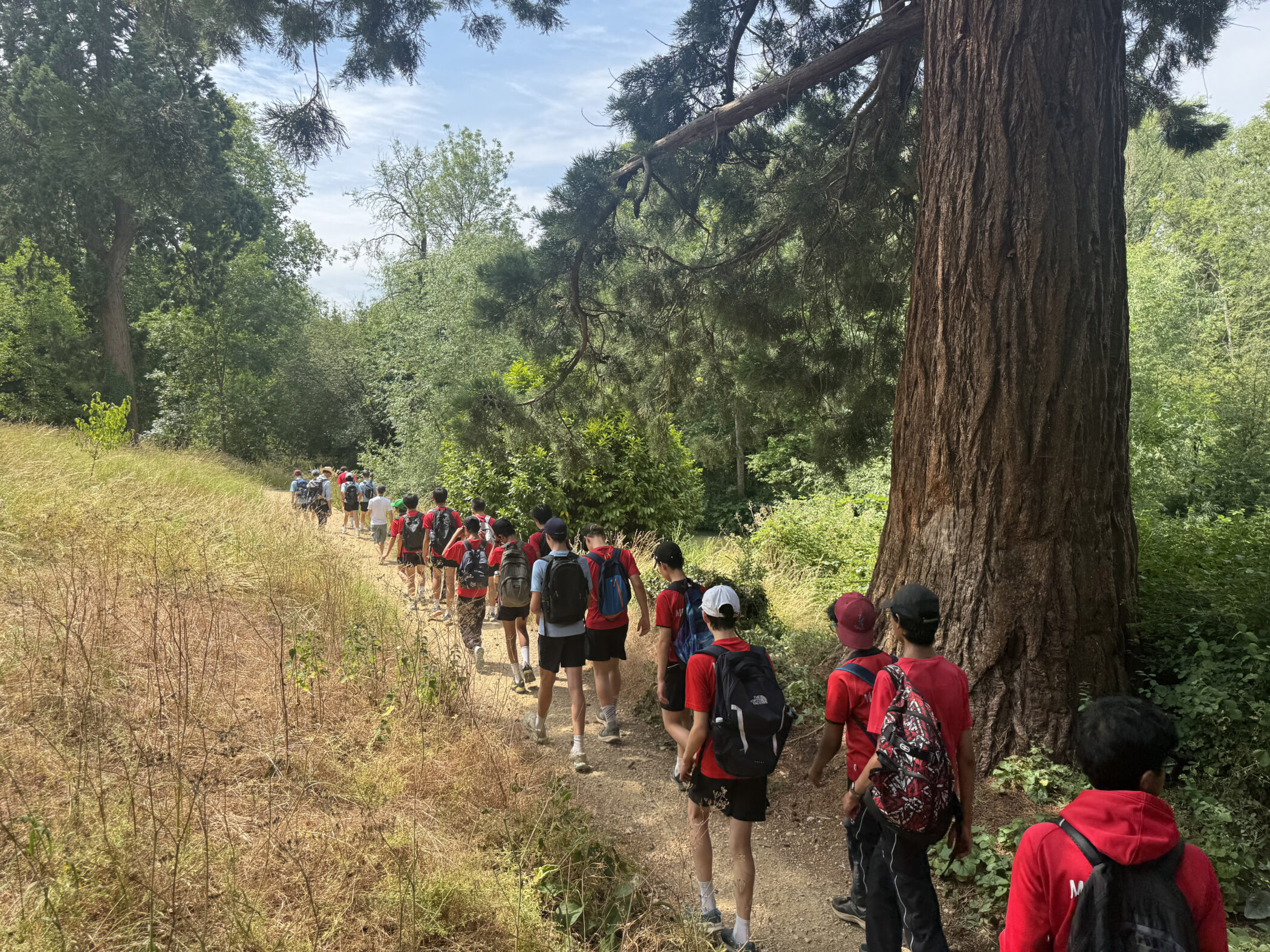The Waynflete Studies Programme is our unique version of the extended project, in which every Lower Sixth former has the opportunity to research a topic of their choice, many under the guidance of an external university tutor. This year of research starts with an introductory programme of lectures that help the students to orientate in the diverse fields and methods of academia.
On 23rd September, the first Waynflete Lecture was delivered by Professor Karen O’Brien, expert in the literature and intellectual history of the Enlightenment and Vice Chancellor Designate of Durham University. Her topic was ‘Thinking Skills’ – a sharp, practical, enlightening talk which powerfully emphasised the importance of intellectual flexibility and self-awareness in framing, researching and successfully completing a Waynflete project.
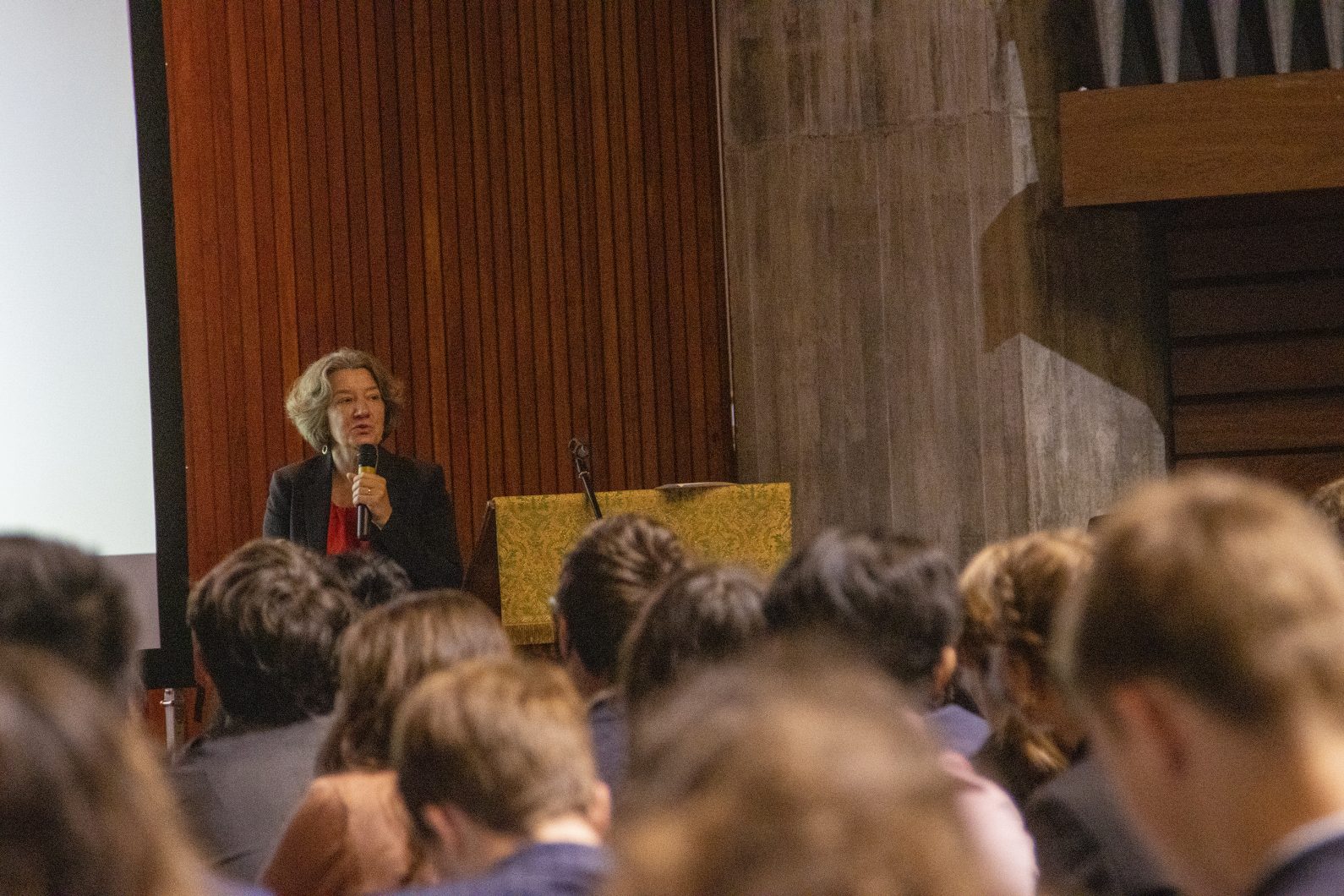
Taking imaginative examples of projects that might have existed over time, she demonstrated how to become conscious of and unpick one’s own assumptions before they become stumbling blocks in the way of a good title. Professor O’Brien employed an elastic range of disciplines in exploring how to formulate a reasoned argument, and how to choose and evaluate evidence, as well as the crucial distinctions between paraphrasing and synthesising sources effectively. The lecture culminated in a nuanced examination of the forms a compelling conclusion might take, as well as a shrewd look at classic mistakes such as the confusion of causation and correlation. An inspiring tour of the rigours and pleasures of intellectual exertion!
On Thursday 4th November, 2021, Professor Matthew Wood gave a lecture to our Lower Sixth form students on the use of RNA therapy in medicine. Professor Wood is a Professor of Neuroscience at the University of Oxford, an advisor to several organisations targeting muscular and neurodegenerative diseases, and a researcher into the use of RNA therapy in medicine.
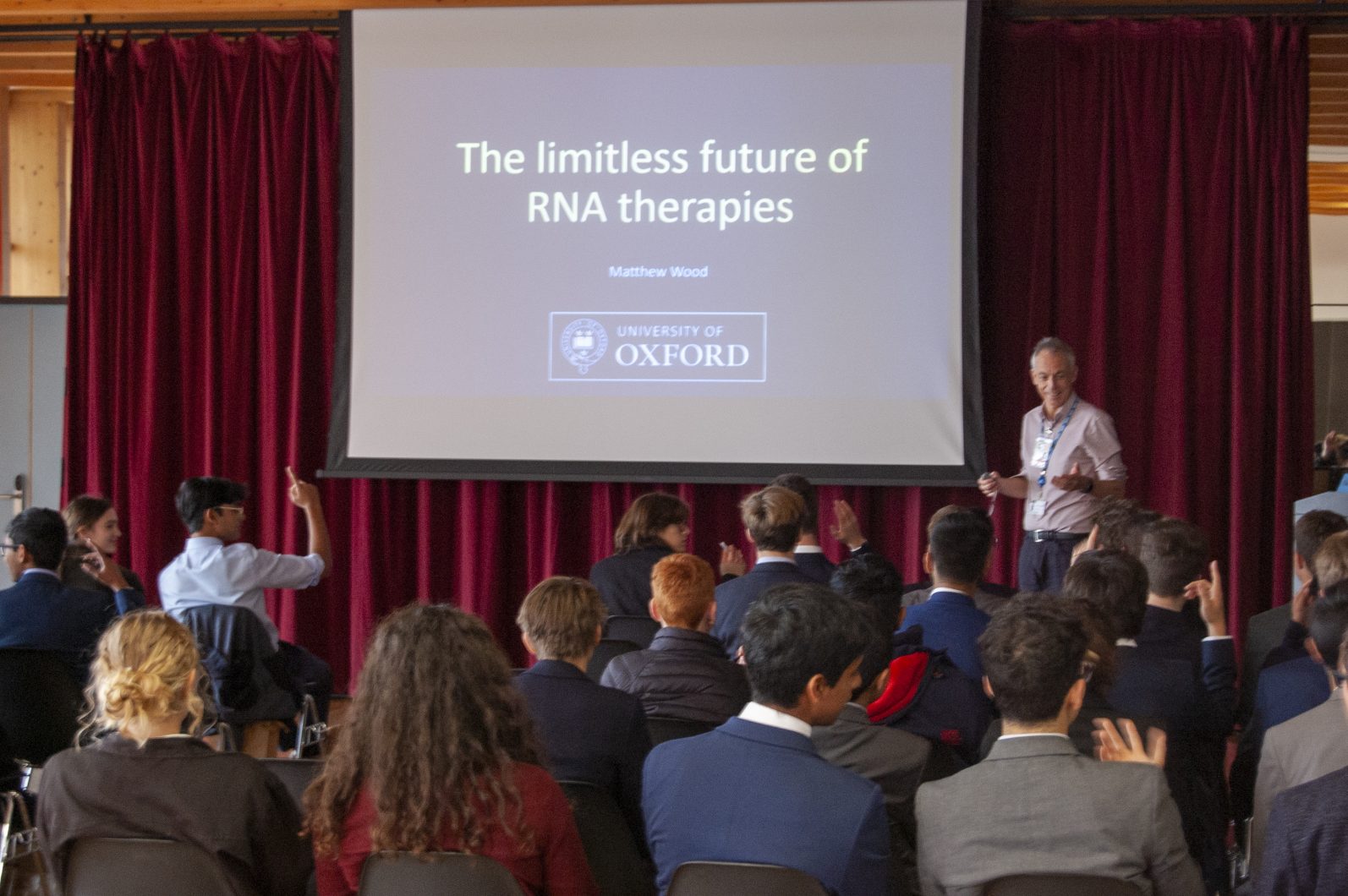
Professor Wood began by outlining the diversity of the RNA molecule, noting the variety of forms that the molecule exists in and its uses. He then went onto intricately describe the use of RNA therapy in the treatment of disease, discussing both RNA splicing, such as the use of oligonucleotides to splice the proteins causing spinal muscular atrophy, as well as RNA silencing therapy. Professor Wood also discussed the creation and delivery of mRNA vaccines using mRNA therapy. Finally, he gave insight into the future of the field, explaining how the rapid and programmable nature of RNA makes it an attractive option for medicine in the coming years, with the next steps being to develop the ability to deliver these drugs successfully and effectively.
Professor Wood’s lecture was an eye-opening look into RNA therapy research and highlighted the cutting-edge nature of the field and its challenges. It was an extremely inspirational and informative session.
Also on Thursday 4th, we were delighted to welcome Prof. Ben Ansell to MCS, who delivered a superb lecture to our Lower 6th Waynflete Studies students on the topic of the politics of public service.
Prof. Ansell is a Professor of Comparative Democratic Institutions at Nuffield College and the University of Oxford, having also previously taught at the University of Minnesota. In 2021 he published Inward Conquest: The Political Origins of Modern Public Services alongside co-author Johannes Lindvall. His book, which examines the development and governance of seven key public across 19 countries from 1800 to 1939, also formed the basis for his captivating lecture.
Prof. Ansell began by outlining a brief history of civilian police forces, highlighting how until about 200 years ago police forces were part of the military, and questioning the rationale behind different methods of policing – including why Canada has a royal mounted police whereas the USA has no national police force at all. The lecture subsequently journeyed into the topic of mental asylums, including an exploration of London’s Bethlehem Hospital and its role in influencing public and political perception of such institutions. This led into a discussion of how policing and enforcing of laws has changed over time. Even in the early 19th Century, the average prison term was only a matter of weeks, with serious crime being dealt with through extreme punishments such as exile and execution, with much enforcement of law and order being carried out at a community level.
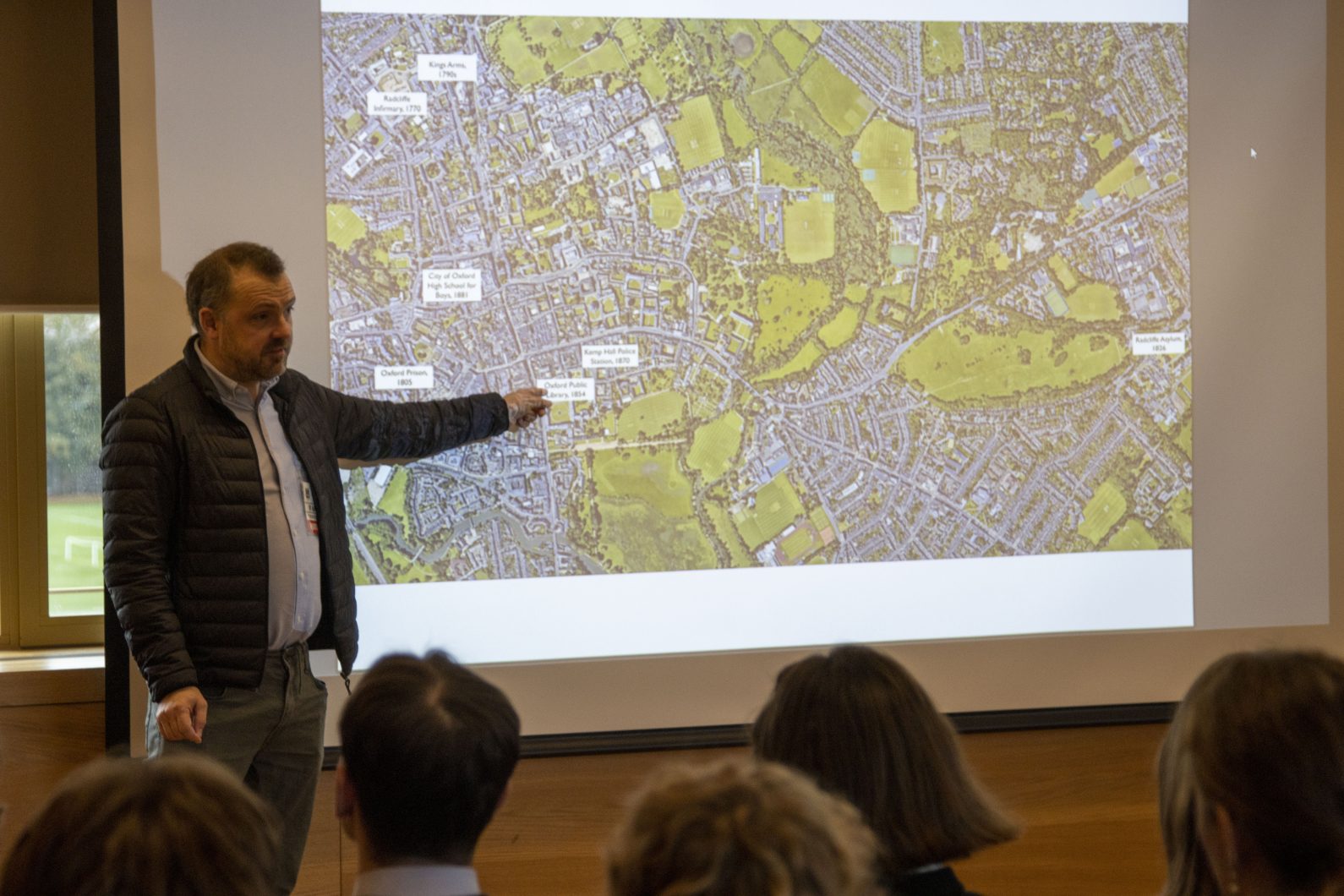
A riveting tour of Oxford landmarks soon followed, illustrating the huge variety of uses which buildings have had throughout the years – for example, the Kings Arms pub served as the first vaccination centre in the city for smallpox immunisations. All of these huge 19th century buildings serve as perfect examples of how this period of history saw an increasing level of government and public involvement in the management of society, whether this be provision of healthcare or the control of crime. As his lecture moved into its second half, Prof. Ansell then guided students through the practical process of going from a broad topic of interest to a finished book, including how he and his co-author managed to decide which public services to include (and which to leave out). Filled with a variety of hints and tips which students can directly apply to their own research process, this part of his talk was not only a fascinating insight into the content of Prof. Ansell’s book, but also a highly useful how-to guide. His refreshingly honest stories of the challenges and opportunities presented by academic research doubtless left students feeling motivated as they begin working on their own projects. Prof. Ansell finished his talk by offering some key tips for students embarking on research projects – most importantly, that deciding what to exclude is often far more important than deciding what to include.
We are very grateful to Prof. Ansell for giving up his time to speak to our students, and delivering such an informative and enlightening lecture.
 MCS ranks among the top independent secondary schools, and in 2024 was awarded Independent School of the Year for our contribution to social mobility.
MCS ranks among the top independent secondary schools, and in 2024 was awarded Independent School of the Year for our contribution to social mobility.

 28 of our pupils achieved 10 or more 8 or 9 grades in 2024.
28 of our pupils achieved 10 or more 8 or 9 grades in 2024.
 In 2023-24, MCS received over £448,000 in donated funds.
In 2023-24, MCS received over £448,000 in donated funds.
